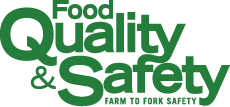Manual sample preparation is the bottleneck in your dairy analysis? The most efficient way to clean your dairy samples from proteins, colloids, and particles is Inline Dialysis. Depending on the kind and number of samples, this fully automated inline sample preparation technique can save your staff hours of tedious manual work every day.
Inline Dialysis and other inline sample preparation techniques are part of the Metrohm ion chromatography (IC) solution for dairy analysis. IC is a proven LC method that can determine multiple QC parameters of dairy products ranging from anions to cations, amines, carbohydrates, and more.
Join us and learn:
- What inline dialysis is and how it works;
- What the advantages of this technique are over traditional, manual preparation of dairy samples (e.g., Carrez precipitation);
- How state-of-the-art, multi-parameter analysis of typical dairy samples by ion chromatography works.
This event is followed by a Q&A.
Sponsored by Metrohm.
